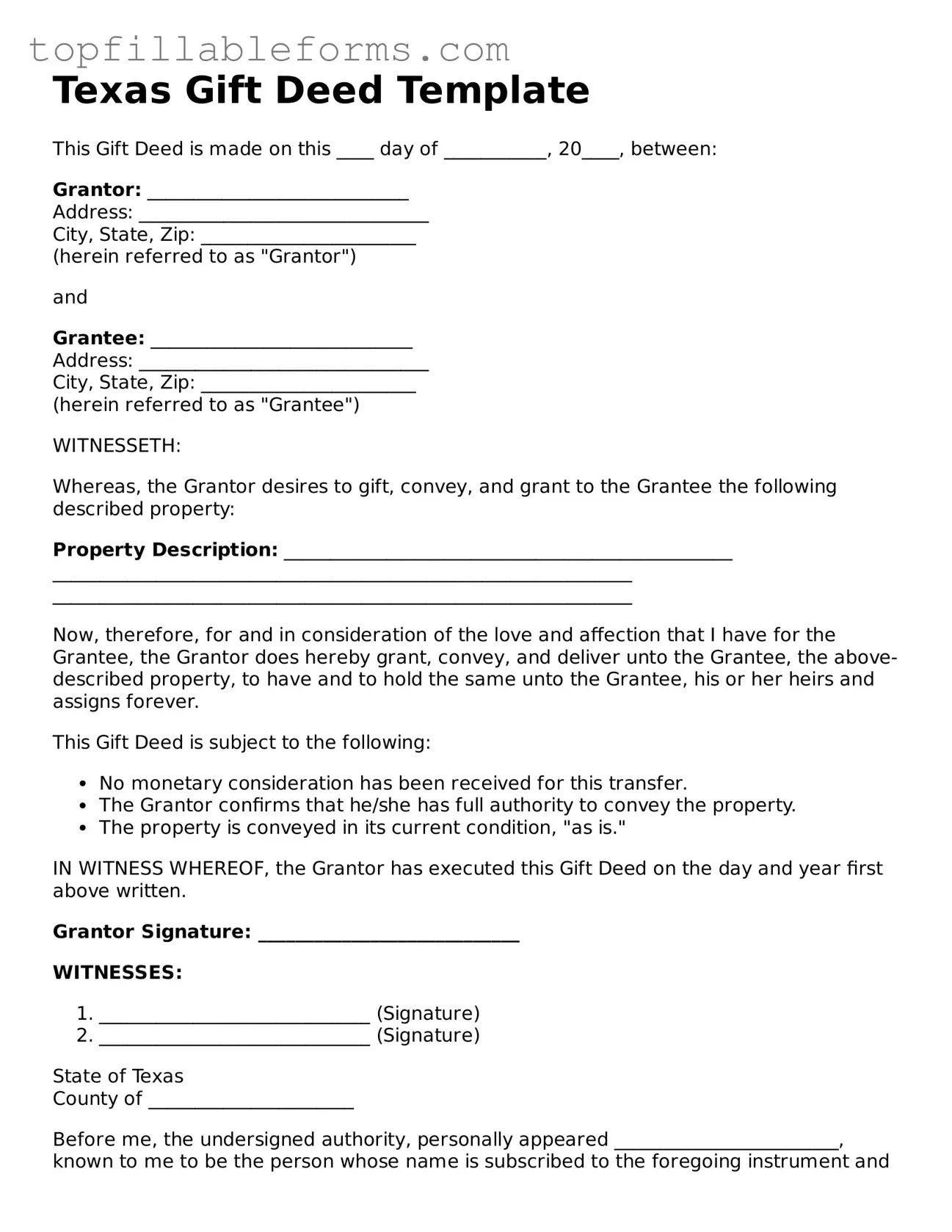Attorney-Verified Gift Deed Template for Texas
A Texas Gift Deed is a legal document used to transfer ownership of real property as a gift, without any exchange of money. This form allows the donor to convey their property to the recipient, known as the grantee, while ensuring that the transaction is properly documented. Understanding the nuances of this form can help facilitate a smooth transfer of property between parties.
Open Gift Deed Editor Here

Attorney-Verified Gift Deed Template for Texas
Open Gift Deed Editor Here
Finish the form now and be done
Finish your Gift Deed online by editing, saving, and downloading fast.
Open Gift Deed Editor Here
or
▼ PDF File
